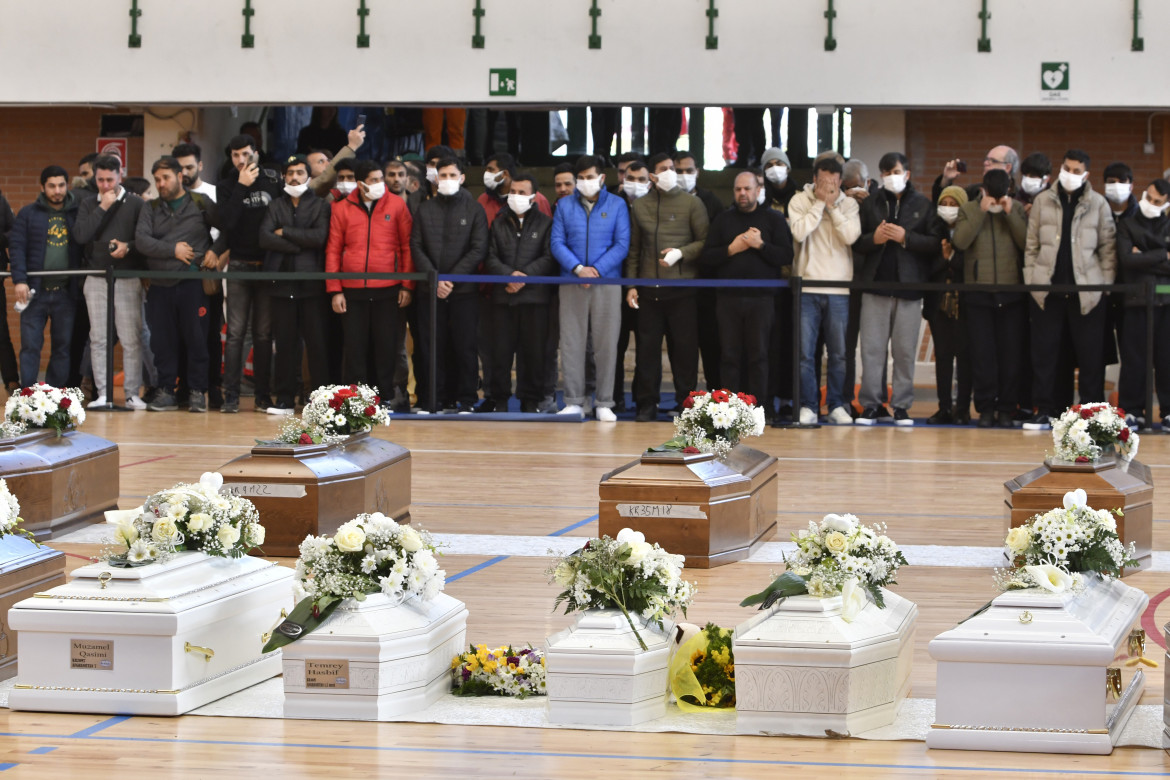Report
The paradoxical return of Afghan bodies to the Taliban's Kabul
Exhausted by the back-and-forth between prefectures, funeral homes, the Ministry of the Interior and broken promises, the relatives of the victims have had to go through the embassy of a government that no longer exists.

On Friday, the funeral rites for seven Afghans who died in the February 26 Steccato di Cutro shipwreck along with 65 other people were held at the Borgo Panigale cemetery in Bologna. In attendance were dozens of Afghans living in Italy and some family members who were able to say goodbye to their loved ones.
Many other victims’ relatives haven’t had that chance, caught in the exhausting back-and-forth involving prefectures, funeral homes, the Interior Ministry and empty promises. They have been waiting for days for the bodies to be transferred, via Germany and Turkey, to Afghanistan, where the Taliban are in power: another problem, according to the Interior Ministry, since there is no official, direct diplomatic channel with the de facto Afghan authorities.
In one of the paradoxes of politics, the whole process had to go through the Embassy of the Islamic Republic of Afghanistan in Italy, an embassy that represents an institutional architecture that was destroyed in August 2021, with an ambassador, Khaled Zekriya, who certainly does not take orders from Kabul and is challenging the legitimacy of the ruling Islamists at every opportunity. He made the effort to go to Steccato di Cutro in person, long before the parade of Italian politicians.
He went to meet the families of the victims. It was up to him – to the embassy of a state that no longer exists, replaced by an Islamic Emirate that exists de facto but not de jure and lacks any form of recognition – to issue the death certificates without which the bodies would remain nameless and unable to reach their country of origin: Afghanistan, from which one leaves, but always dreams of returning. Returning alive, though.
Those looking for the most obvious accountability already know who the culprits are, in addition to the traffickers: the Taliban, who deny women’s rights, institutionalize gender apartheid and force women like Torpekai Amarkhel, a journalist for Afghanistan’s national Radio TV and advisor to the UN mission in Kabul (UNAMA), to flee the country – only to meet their death in front of the Italian coast. The problem is extremely serious, so much so that on Thursday, Roza Otunbayeva, head of UNAMA, stressed that nowadays Afghanistan is “the most repressive country in the world” for women.
But that is not the only problem. There are those who are fleeing the Taliban, those who are leaving because there is no future for women, and those who are emigrating because the country is on the edge of the abyss, with a very serious humanitarian crisis, caught in a radical political transition and with an economy that is on its knees. Not only because of the Taliban, but because of deliberate choices made by the international community – such as seizing the Afghan Central Bank’s funds: $7 billion held in the U.S. alone, half of which ended up in a Swiss fund. This is money that came from Afghans, but over which Afghans have no ownership.
They also have no passports or means of securing legal exit routes, since Western embassies are closed. On Thursday, Abdul Haseeb Karim, the cleric in charge of the Passport Department in Kabul, claimed that the “technical problems” had been solved and the offices would reopen soon. They have been closed for five months. In the meantime, on the black market in Kabul, prices for passports have skyrocketed.
Originally published at https://ilmanifesto.it/il-paradossale-ritorno-delle-salme-afghane-nella-kabul-dei-talebani on 2023-03-11
